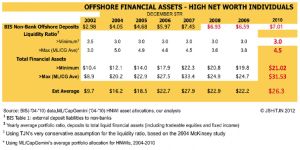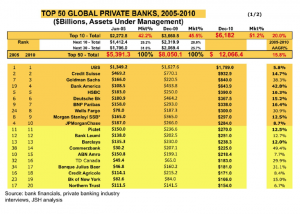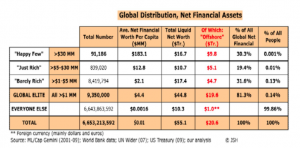Why Is the Superintendent of Financial Services Policing our Iran Sanctions?
NY’s Superintendent of Financial Services, Benjamin Lawsky, yesterday dropped the hammer on the UK’s Standard Chartered Bank, accusing it of doctoring financial documents to facilitate the laundering of Iranian money through its US banks.
Like Yves, I think one of the most striking details about this story is that SFS–and not Treasury’s Office of Foreign Assets Controls–is making the accusation.
But it also appears that Lawsky has end run, as in embarrassed, the Treasury and the New York Fed. As part of its defense, SCB contends it was already cooperating with Federal regulators:
In January 2010, the Group voluntarily approached all relevant US agencies, including the DFS, and informed them that we had initiated a review of historical US dollar transactions and their compliance with US sanctions…The Group waived its attorney-client and work product privileges to ensure that all the US agencies would receive all relevant information.
The agencies in question are “DFS, the Department of Justice, the Office of Foreign Assets Control, the Federal Reserve Group of New York and the District Attorney of New York.”
[snip]
The lack of action by everyone ex the lowly New York banking supervisor is mighty troubling. The evidence presented in Lawsky’s filing is compelling; he clearly has not gone off half cocked. Why has he pressed forward and announced this on his own? The Treasury Department’s Office of Terrorism and Financial Intelligence has supposedly been all over terrorist finance; the consultants to that effort typically have very high level security clearances and top level access (one colleague who worked on this effort in the Paulson Treasury could get the former ECB chief Trichet on the phone). For them not to have pursued it anywhere as aggressively as a vastly less well resourced state banking regulator, particularly when Iran is now the designated Foreign Enemy #1, does not pass the smell test.
Normally, we’d see accusations like SFS released today from Treasury’s OFAC, perhaps (for charges as scandalous as these) in conjunction with the NY DA and/or a US Attorney. And yet OFAC has had these materials in hand for 2 years, and has done nothing.
In fact, we have a pretty good idea what OFAC’s action would look like, because earlier this year it sanctioned ING for actions that were similar in type, albeit larger in number (20,000 versus 60,000) and far larger in dollar amount ($1.6 billion involving Cuba versus $250 billion involving Iran). Both banks were doctoring fields in SWIFT forms to hide the source or destination of their transfers.
ING:
Beginning in 2001, ING Curacao increasingly used MT 202 cover payments to send Cuba-related payments to unaffiliated U.S. banks, which would not have to include originator or beneficiary information related to Cuban parties. For serial payments, up until the beginning of 2003, NCB populated field 50 of the outgoing SWIFT MT 103 message with its own name or Bank Identifier Code, Beginning in the second quarter of 2003, NCB populated field 50 with its customer’s name, but omitted address information. ING Curacao also included its customer’s name, but no address information, in field 50 of outgoing SWIFT messages.
SCB:
Rather than institute [a required to ensure the funds didn’t come from Iran], SCB instead conspired with Iranian Clients to transmit misinformation to the New York branch by removing and otherwise misrepresenting wire transfer data that could identify Iranian parties. For example, regarding necessary wire transfer documentation, SCB instructed CBI/Markazi to “send in their MT 202‟s with a [SCB London‟s business identifier code] as this is what we required them to do in the initial set up of the account. Therefore, the payments going to NY do not appear to NY to have come from an Iranian Bank.” (emphasis added). SCB also accomplished this subterfuge by: (a) inserting special characters (such as “.”) in electronic message fields used to identify transacting parties; Read more →




